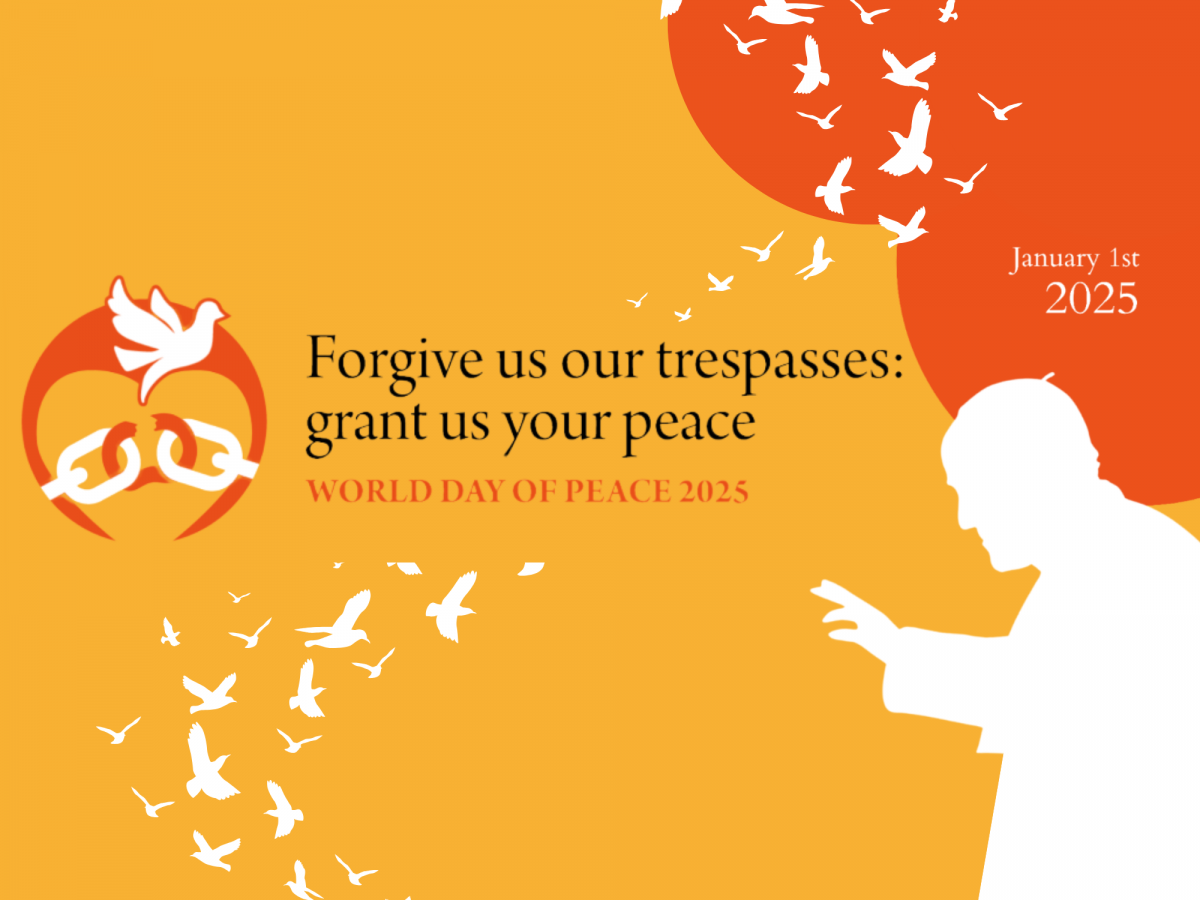Brad Rozairo, OMI – The message of Pope Francis for this year’s “World Day of Peace” is titled “Forgive us our trespasses: grant us your peace”. In teaching us to pray the Lord’s Prayer, the Pope says, “Jesus begins by asking the Father to forgive our trespasses, but passes immediately to the challenging words: as we forgive those who trespass against us (cf. Mt 6:12). I think, this is where we struggle in living the Lord’s Prayer. We know that forgiveness is not easy but as Christians our Lord expects us to be reconciled with those that harm us by forgiving them.

In his message, our Holy Father says, “To forgive others their trespasses and to offer them hope, we need for our own lives to be filled with that same hope, the fruit of our experience of God’s mercy. Hope overflows in generosity; it is free of calculation, makes no hidden demands, is unconcerned with gain, but aims at one thing alone: to raise those who have fallen, to heal hearts that are broken and to set us free from every kind of bondage”. Having said this, he goes on to propose three concrete actions to restore human dignity and foster hope.
1. Forgiveness of external debt: An invitation to the international community to forgive poor countries the debts they are no longer able to repay – “In the spirit of this Jubilee Year, I urge the international community to work towards forgiving foreign debt in recognition of the ecological debt existing between the North and the South of this world. This is an appeal for solidarity but above all for justice”.
2. Abolition of the death penalty: An invitation to respect human life – “I also ask for a firm commitment to respect for the dignity of human life from conception to natural death, so that each person can cherish his or her own life and all may look with hope to a future of prosperity and happiness for themselves and their children. Without hope for the future, it becomes hard for the young to look forward to bringing new lives into the world. Here I would like once more to propose a concrete gesture that can help foster the culture of life, namely the elimination of the death penalty in all nations. This penalty not only compromises the inviolability of life but eliminates every human hope of forgiveness and rehabilitation”.
3. World Fund against hunger: An invitation to set up a fund to eradicate hunger and help promote education in poorer countries – “I do not hesitate to make yet another appeal, for the sake of future generations. In this time marked by wars, let us use at least a fixed percentage of the money earmarked for armaments to establish a global Fund to eradicate hunger and facilitate in the poorer countries educational activities aimed at promoting sustainable development and combating climate change”.
Towards the end of his Message, Pope Francis says, “Those who take up these proposals and set out on the journey of hope will surely glimpse the dawn of the greatly desired goal of peace”.
Reading through the peace message, it is clear that by addressing the three concrete proposals, our Holy Father would like to bring hope to the hopeless. For him what makes the world more beautiful are hope and kindness. This is very much seen in the papal Bull of Indiction titled “Hope Does Not Disappoint” (Rom.5:5), published for the 2025 Jubilee Year. The challenges and difficulties we face in life make us think that everything is over and we see ourselves walking through a dark tunnel. But these are moments for us to embrace hope because it never fails. Pope says, “I like to think of hope being like an anchor on the shore, and we, holding the rope, are there, safe because our hope is like an anchor” hooked into the earth. “This is the message I want to give all of us, including myself: Don’t lose hope.”
We are invited to discover hope in the “signs of the times that the Lord gives us” and for our Pope, the first sign of hope should be “the desire for peace” in our broken world. The world we live in is torn apart by war and violence and many who continue to go through pain and suffering are longing for lasting peace.
I believe that prayer is the spiritual weapon that brings peace. This I have experienced during the long years of the ethnic war in Sri Lanka. I remember without failing, every day we used to pray earnestly for peace hoping that one day our prayers would be heard. And, the Lord listened to the cry of the poor (Psalm 34). In the year 2009 when the guns and artillery fell silent, for the first time in twenty-six years we could experience peace. Therefore, in this new year, without losing hope let us pray and spend time in activities that promote peace so that one day we will be able to experience peace.


